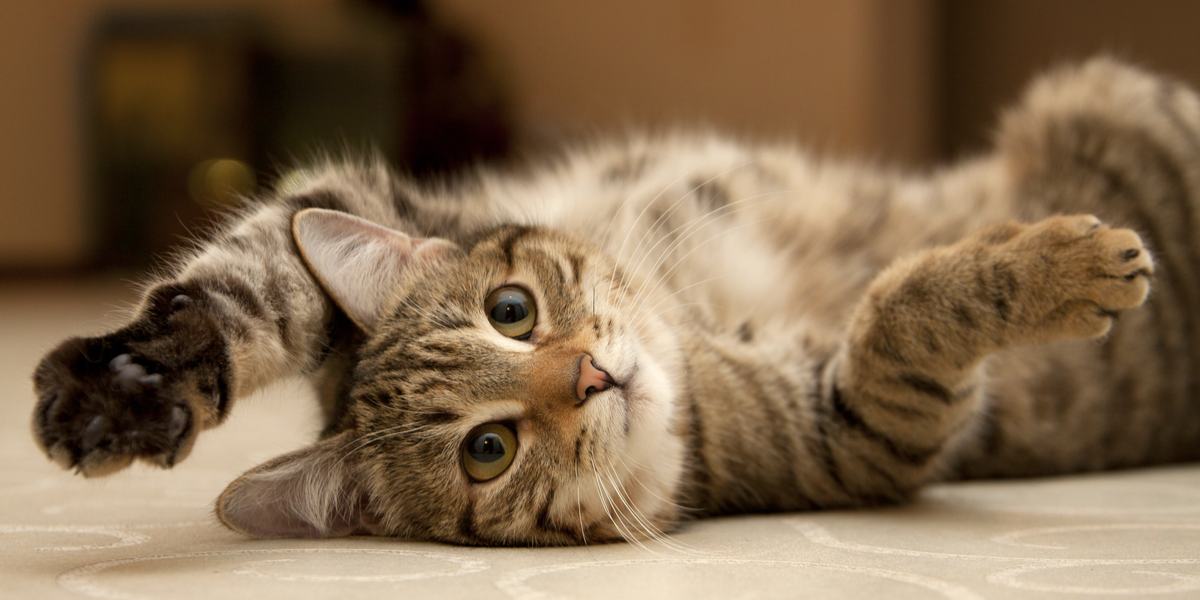Cats are fascinating creatures that possess unique traits and behaviors. One question that often arises is whether cats have scent glands in their paws. In this blog post, we will explore this intriguing topic and provide you with all the information you need to understand your feline friend’s scent capabilities.
Understanding Scent Glands
Scent glands are a common feature among mammals, including cats. These glands secrete pheromones, which are chemical substances that play a vital role in communication and social interactions. Cats have several scent glands located throughout their bodies, including those in their paws.

Credit: www.facebook.com
Cats and Their Paw Scent Glands
Yes, cats do have scent glands in their paws. These glands are known as digital scent glands and are situated on the paw pads. Each of their front paws has these glands, and they play a crucial role in territorial marking and communication.
The digital scent glands produce a unique scent that is specific to each cat. When a cat scratches a surface, it leaves behind its scent from these glands, essentially marking its territory. This behavior is especially prominent in outdoor cats, as they use scent marking to communicate with other felines in the neighborhood.

Credit: cats.com
Purpose of Scent Glands in Cats’ Paws
The scent glands in a cat’s paws serve multiple purposes. Let’s explore some of the main functions these glands fulfill:
- Territorial Marking: By scratching various objects with their paws, cats release pheromones from their scent glands. This marking behavior establishes territorial boundaries and communicates to other cats that the area is occupied.
- Social Communication: The scent left behind by a cat’s paws can relay important messages to other cats. It can indicate information such as reproductive status, availability for mating, and general well-being.
- Emotional Signaling: Scent marking through paw scratching can also reflect a cat’s emotional state. When a cat is stressed or anxious, it may engage in excessive scratching to release pheromones and signal its distress to other cats.
- Navigation and Familiarization: Cats rely on their acute sense of smell to navigate and recognize familiar areas. The scent marks left behind by their paws help them identify trails and find their way back home.
Understanding Your Cat’s Behaviors
Now that you know about the scent glands in cats’ paws, it can help you understand some of your feline friend’s behaviors better. Scratching behavior, for instance, is not merely an act of sharpening their claws; it is a vital means of communication for cats.
If you notice your cat excessively scratching objects around your home, it might be a sign of stress or anxiety. In such cases, it is important to provide your cat with a safe and enriching environment to alleviate any emotional distress.
Cat-Friendly Environment
To ensure your cat’s overall well-being, create an environment that is conducive to their natural inclinations. Provide appropriate scratching posts to allow them to fulfill their instinctual need to scratch and scent mark. Additionally, enrich their surroundings with toys and interactive play to promote mental stimulation and physical exercise.
Understanding the presence of scent glands in your cat’s paws can enhance your bond with them. By respecting their natural behaviors and providing an environment that caters to their instincts, you can ensure a happy and content feline companion.
Frequently Asked Questions On Do Cats Have Scent Glands In Their Paws
Do Cats Have Scent Glands In Their Paws?
Cats do not have scent glands in their paws. However, they have scent glands on various parts of their bodies, such as their face, chin, and tail.
How Do Cats Mark Their Territory?
Cats mark their territory using scent glands located on their face, chin, and tail. They rub against objects, leaving their scent as a way of claiming ownership.
Why Do Cats Scratch?
Cats scratch to mark their territory and to keep their claws sharp. Scratching also helps remove the dead outer layer of their claws.
How Can I Prevent My Cat From Scratching Furniture?
To prevent your cat from scratching furniture, provide an alternative, such as a scratching post. Regular nail trimming and using deterrent sprays can also be effective.
Conclusion
Cats do have scent glands in their paws, known as digital scent glands. These glands serve an essential role in territorial marking, social communication, emotional signaling, and navigation. Understanding these behaviors and fulfilling your cat’s natural instincts can contribute to their overall well-being and strengthen the human-feline bond. So, embrace your cat’s unique scent capabilities and create a cat-friendly environment that allows them to express themselves.
Leave a Reply